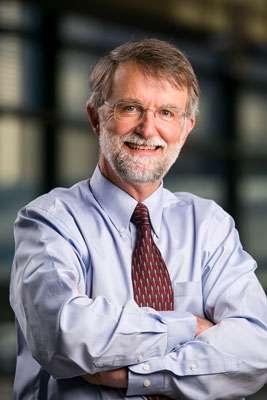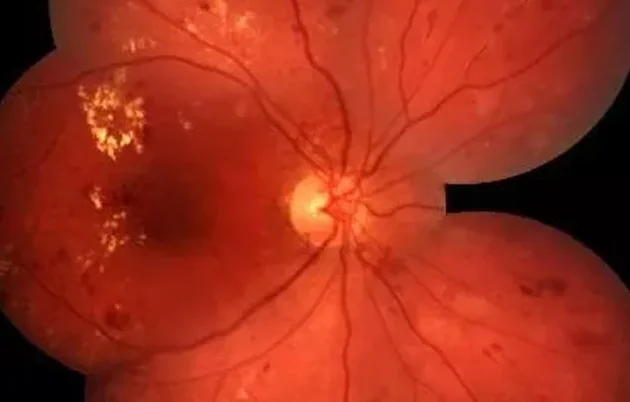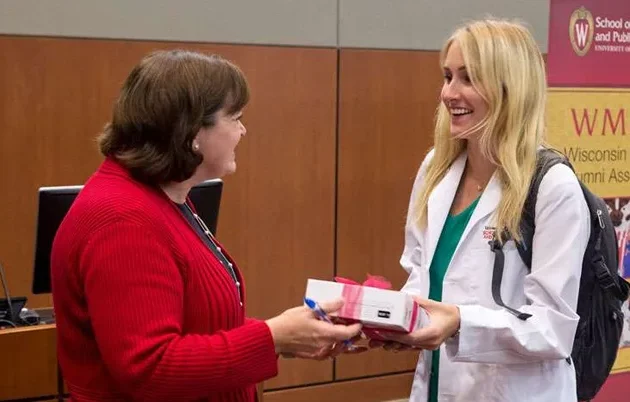When the University of Wisconsin School of Medicine and Public Health established its MPH Program in 2005, the core curriculum focused on five traditional competency “pillars,” including epidemiology, biostatistics, social and behavioral sciences, health management and policy, and environmental health. Now, to best meet the nation’s evolving, most pressing public health needs, our MPH Program is transforming its curriculum to focus on new “cross-cutting” competencies, including evidence-based approaches to public health, public health and health care systems, planning and management to promote health, policy in public health, leadership, communication, interprofessional practice, and systems thinking — competencies directly connected to improving the health of communities and health systems.
Sometimes people ask me what stage of a career is the best time to get an MPH. Some students complete an MPH before medical school, which gives them a unique perspective during their medical training. Others complete their MPH after medical school, allowing them to align their public health training with their clinical perspectives. And for some it works best to complete those degrees simultaneously, through our MD-MPH Dual-Degree Program.
We are fortunate to be able to provide scholarships from the Wisconsin Medical Alumni Association and Perlson Fund for many of these students. Second, I say, “An MPH is neither necessary, nor sufficient.” Many accomplished physician leaders in public health have gained experience and expertise in the course of their careers, without formal training. I also have known physicians who obtained an MPH, but years later say they never really applied their public health knowledge in their work. It’s what you do with what you learn that counts.
Finally, I encourage students to “Talk with others who have completed their MPH degrees.” Several accomplished leaders in our school, who work in a variety of clinical specialties, also have public health training. They include:
- Emergency medicine: Azita Hamedani, MD, MPH, MBA; Manish N. Shah, MD, MPH
- Family medicine: Jennifer Edgoose, MD, MPH; Patrick McBride, MD ’80, MPH
- Internal medicine: Shobhi Chheda, MD, MPH; Michael Fiore, MD, MPH, MBA
- Pediatrics: Gwen McIntosh, MD ’96, MPH; Dipesh Navsaria, MD, MPH (PG ’09)
- Preventive medicine: Jonathan Patz, MD, MPH; Parvathy Pillai, MD, MPH
- Surgery: Caprice Greenberg, MD, MPH; Ann O’Rourke, MD ’02, MPH ’06
In my case, I recall — on my last day of medical school — asking Dr. Dennis Maki (MD ’67) similar questions. We discussed my career goals, including my interest in working in global health with a focus on prevention. He picked up the phone, called the Centers for Disease Control and Prevention (CDC) and spoke with the (then) director of the Epidemic Intelligence Service Program, Dr. Phil Brachman (MD ’53). That brief conversation with someone who had trained in medicine and public health changed my life. In line with Dr. Maki’s advice, I went to the CDC, where I completed my MPH as part of its Preventive Medicine Residency and career development programs.
“Should I get an MPH?” The answer to this question depends first on whether you want to integrate medicine and public health in your career. If you do, then an MPH may provide you with the skills to become a better physician in terms of caring for patients and for entire communities. If you’re not sure, keep your eyes open and ask questions of others who have distinguished careers in medicine and public health — with or without formal MPH training. But beware — these conversations may change your life.
More information:
MD-MPH program
Pat Remington, MD ’81, MPH
Professor and Associate Dean for Public Health
Director, Preventive Medicine Residency Program
University of Wisconsin School of Medicine and Public Health


